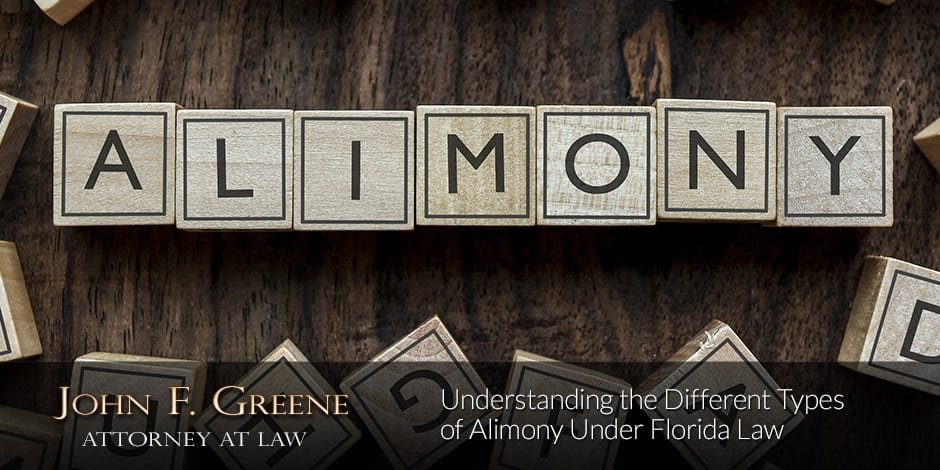
One of the hottest issues that surround divorce in Northwest Florida is alimony. If you’re undergoing divorce in Panama City, Destin, Fort Walton Beach and other surrounding areas, you may be liable to pay or receive alimony. Indeed, these payments (made as a lump sum or monthly) are primarily meant to assist a spouse who is of lesser financial stability to establish themselves after divorce. Take a moment and learn about the different types of alimony under Florida law and how each may affect the outcome of your divorce and livelihood.
Alimony payments may be critical in allowing you to meet your living expenses after divorce. On average, divorcing parties require a 30% increase in income just to sustain their previous lifestyle. In addition, one in 5 women ends up falling into poverty after a divorce.
It is, therefore, important for divorcees to ensure that they receive the alimony payments that they deserve. An experienced Florida divorce attorney can represent your case as well as your interests if you’re having trouble receiving alimony.
Defining Alimony under Florida State Law
Alimony, under Florida law, refers to payments that are made from one spouse (of greater financial resources) to another spouse for a period of time after the divorce. The primary purpose of alimony is to allow a former spouse to get back on their feet after a divorce.
Because both a separation as well as a divorce are costly, either scenario can result in a significant change in lifestyle and expenses, especially for the spouse of lower financial ability. To bridge this disparity, Florida state law provides for alimony payments.
Types of alimony
There are 5 different types of alimony under Florida law. These can be awarded by a judge, in any combination necessary, to meet the circumstances of the divorce.
Temporary alimony
Temporary alimony refers to payments made to a spouse to provide necessary financial support during the actual divorce proceedings. It typically ends once the divorce is finalized.
Bridge the gap alimony
Bridge the gap alimony is issued for a short term after the divorce. It is meant to allow the recipient spouse to meet temporary financial needs before they can become fully independent. For example, you may be waiting to sell your marital home soon after the divorce in order to use the funds to meet your needs.
Durational alimony
A judge may award durational alimony for a certain fixed term after the divorce. The maximum period for durational alimony is the length of the marriage itself (so if you were married for 5 years, durational alimony could not exceed 5 years).
Rehabilitative
This type of alimony is meant to pay for a spouse to acquire the necessary training or education in order to obtain specific employment.
Permanent alimony
Though rare, permanent alimony can be awarded to a spouse who is deemed to lack the ability to obtain a standard of living that closely resembles what they had in the marriage.
Determining alimony payments
Under Florida state law, alimony payments are determined after considering several factors. First, a judge will determine the actual need for alimony by a spouse, after which the other spouse will be assessed for the ability to pay.
While there is no predetermined formula for alimony payments, a judge will typically consider the previous standard of living, length of the marriage, available financial resources, the recipient’s earning capability, among other factors.
Alimony with the help of a divorce attorney
It can be tricky to pursue alimony payments from a former spouse. Even if a judge awards alimony, you may still find yourself pursuing your ex-spouse to obey the orders of the court. Therefore, having an aggressive and experienced divorce attorney is essential.
 If you’re undergoing divorce in Okaloosa, Bay, Walton, or Santa Rosa County (and surrounding areas), John F. Greene can help. As an experienced and aggressive divorce attorney, he can represent your interests and help you obtain the alimony that you truly deserve. Schedule a Consultation online with John F. Greene or call (850) 424-6833 today.
If you’re undergoing divorce in Okaloosa, Bay, Walton, or Santa Rosa County (and surrounding areas), John F. Greene can help. As an experienced and aggressive divorce attorney, he can represent your interests and help you obtain the alimony that you truly deserve. Schedule a Consultation online with John F. Greene or call (850) 424-6833 today.









